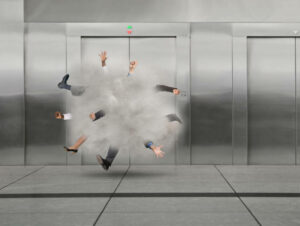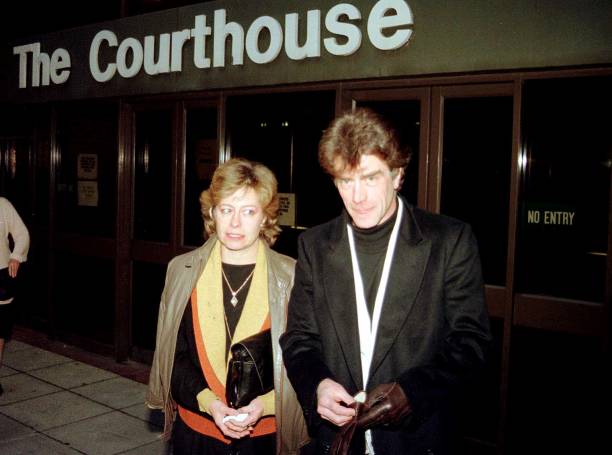
Everybody knows you cannot fight at work
An instant dismissal, suspension or disciplinary action is often likely if you are involved in a fight at work. But what if you were not the aggressor and were simply defending yourself? A recent unfair dismissal case has shed light on how the Fair Work Commission views the right of workers to defend themselves when involved in a workplace fight.
In this article, we’ll take a look at the dramatic events of this unfair dismissal case – Wael Al-Buseri v NSW Trains T/A NSW TrainLink [2023]. But first, let’s look how the law regards dismissals from fighting at work, and how an argument of self-defence can factor in.
What does the law say about self-defence and fighting at work?
The Fair Work Act 2009 outlines that serious misconduct can include assault. This means that fighting at work can be considered serious misconduct and therefore warrant a summary dismissal. The Fair Work Commission and Australia’s courts have regularly recognised the physical assault of another person in the workplace as a valid reason for dismissal.
However, the Fair Work Commission will consider a range of extenuating circumstances to decide if a dismissal for fighting at work is unfair. This typically includes the context in which the fight occurred as well as the length of service and work record of the employee. Also, whether the employee had been provoked and was acting in self-defence.
When taking self-defence into account, the Fair Work Commission will consider the way in which the employee defended themselves. It will decide if the circumstances necessitated acting in self-defence and whether the employee used proportionate or excessive force.

Employee wins unfair dismissal after arguing self-defence
An example of an unfair dismissal case where an employee successfully argued self-defence is Fearnley v Tenix Defence Systems [2000]. In this case, the Applicant Mr Fearnly, engaged in a verbal argument with a colleague. As tensions rose, the colleague placed his finger or Mr Fearnly’s throat, and when he batted it away, the colleague attempted to choke him. Mr Fearnly escaped from his colleague’s clutches and landed a series of blows to his head that required medical attention.
Mr Fearnly defended his actions to the Australian Industrial Relations Commission (the predecessor of the Fair Work Commission), saying that he was “fighting for his life” during the ordeal. The Australian Industrial Relations Commission found in his favour. In ruling that Mr Fearnly’s dismissal was unfair, it stated that:
“In general, fighting at the workplace is unacceptable. Involuntary involvement in a fight or involvement for the purposes of self-defence may well be reasonable.” Now, let’s look at the recent unfair dismissal case Wael Al-Buseri v NSW Trains T/A NSW TrainLink [2023], where a train driver argued self-defence after being involved in a fight at work.

Dismissed train driver claims he acted in self-defence in workplace fight
This unfair dismissal case involves 49-year-old Wael Al-Buseri, a married father of three from Sydney. Having worked for NSW Trains since 2003, Mr Al-Buseri had begun working as an intercity train driver in 2017. He had an unblemished employment record. But on 29 July 2022, Mr Al-Buseri’s life took a dramatic turn on his way to work. He had travelled to Bankstown Railway Station in Sydney’s west so that he could catch a train to his place of work – the Eveleigh train depot just south of the CBD.
Keep going you c*nt:” is provoked by random male
What happened next was captured on CCTV and a Snapchat video. These were key pieces of evidence in this unfair dismissal case. As Mr Al-Buseri stepped onto the concourse of Bankstown Railway Station, he was all of a sudden tripped from behind by a man he did not know. Flabbergasted, Mr Al-Buseri asked the man “why would you do this?” The man then escalated the situation, telling the train driver to “keep going you c*nt,” which caused Mr Al-Buseri to say “this d*ckhead, he tried to trip me over.”
Mr Al-Buseri then stepped back from the man and gestured for him to move past, before walking toward the turnstiles. But the man blocked Mr Al-Buseri from doing so, and then kicked him in the leg. This is when tensions flared into a full-on workplace fight.

“I want you to kill me:” employee get’s involved in a fight at work
What happened next would feature as the key event in this unfair dismissal case. For the next three minutes, Mr Al-Buseri attempted to fend off the man by pushing him in the throat and placing him in a headlock. The train driver also slapped the man in the face and shoved him to the ground. During the fight, the man kicked and grabbed Mr Al-Buseri, calling him and “terrorist” and telling him to “kill me, kill me, I want you to kill me.”
After getting the better of the man in a grappling exchange, Mr Al-Buseri walked away. But the man quickly followed him and the duo exchanged some words. Mr Al-Buseri then pushed the man into a wall and walked away. Realising he dropped his sunglasses, he walked back to retrieve them, keeping a wide berth of the man. The fact that Mr Al-Buseri had tried to deescalate and avoid the fighting multiple times would play a key role in his unfair dismissal hearing.
However, the man decided to front up to Mr Al-Buseri, pushing his belly into his, and as the train driver walked away, continued to hound him. Mr Al-Buseri told the man to “piss off” and “go f*ck yourself.” It was then that a member of the public stepped in to hold the man back from engaging any further.

“Putrid smelling breath:” employee tests positive for COVID-19
A station duty manager and another colleague had watched on as Mr Al-Buseri engaged in the fight. But they offered no help, having locked themselves in a room and calling the police. When the fight ended, Mr Al-Buseri took shelter in a locked room with the duty manager. He was told that the man had left because the police had been called. In turn Mr Al-Buseri boarded a train so he could attend work. Once there, he told his shift manager about the incident, and when his shift ended around 10 pm, Mr Al-Buseri was still shaken by the incident.
After work, Mr Al-Buseri went to Bankstown Police Station to file a police report. He also emailed a manager at NSW Trains detailing the incident. But dealing with this shocking incident was not the only thing Mr Al-Buseri had to contend with. Two days later, he tested positive for COVID-19. In his unfair dismissal claim, Mr Al-Buseri told the Fair Work Commission that he had seen small saliva droplets emanating from the man’s mouth. He said that he had been taken aback by the man’s “putrid smelling breath.”
Employee is suspended then dismissed by NSW Trains
On 8 August 2022, Mr Al-Buseri was due to return to work but was told not to. He was invited to a meeting three days later, for which he was advised to bring a support person. At that meeting, Mr Al-Buseri was advised that he was placed on suspension while a workplace investigation was conducted.
It was alleged that Mr Al-Buseri had violated the NSW Code of Conduct and several other workplace policies. He was informed that the proposed disciplinary action for his behaviour was dismissal. Following the workplace investigation, Mr Al-Buseri was dismissed by NSW Trains for serious misconduct.Mr Al-Buseri subsequently filed an unfair dismissal claim with the Fair Work Commission.

Fair Work Commission takes self-defence argument into account
At his unfair dismissal hearing, Mr Al-Buseri argued to the Fair Work Commission that he was not dismissed for a valid reason. He said that he had been acting in self-defence during his workplace fight with the man. And that NSW Trains had failed to take this into account when dismissing him.
NSW Trains, on the other hand, argued that Mr Al-Buseri had been fairly dismissed for breaching its code of conduct. The Fair Work Commission acknowledged this, stating that Mr Al-Buseri was not “expressly dismissed for ‘assault,’ or the use of excessive force beyond the realms of self-defence.”
However, the FWC asserted that the reason NSW Trains dismissed Mr Al-Buseri was essentially the same as dismissing him for engaging in assault. And by dismissing him for this reason, NSW Trains therefore had to assess if Mr Al-Buseri “was entitled to believe he was faced with a threat”. Further whether his actions were “proportional and appropriate.” Based on this, the Fair Work Commission therefore found it necessary to ascertain whether NSW Trains had a valid reason to dismiss Mr Al-Buseri “by reference of the law of self-defence.”

“At no point does he seek to intervene:” Fair Work Commission slams station staff
The Fair Work Commission acknowledged that Mr Al-Buseri had been confronted by an “angry and agitated” male unknown to him. And that the man had breached social distancing rules by “invading his personal space.” It was also accepted that Mr Al-Buseri had asked the man to move on and had been on the receiving end of abusive language. With Mr Al-Buseri facing this situation, the Fair Work Commission called out the station duty manager for not intervening.
“When the interaction escalates and turns physical, rather than remaining present, or offering the [driver] the opportunity to take refuge in the [his] office, the duty manager retreats and shuts the door to his office,” the Fair Work Commission said during the unfair dismissal hearing. It was therefore acknowledged that Mr Al-Buseri was left “all alone to deal with the offender” and “without any secure place to escape to.”

Fair Work Commission rejects argument of the employer
The Fair Work Commission rejected NSW Trains’ argument that Mr Al-Buseri could have deescalated the situation. It was acknowleged that Mr Al-Buseri had asked the man to move on to “diffuse or deescalate the situation.” And that the man “would not move on.”
The Fair Work Commission also took issue with NSW Trains’ contention that the man had never threatened Mr Al-Buseri with words. It flatly rejected this notion that threatening words were required to defend oneself. It was noted that the man had tripped Mr Al-Buseri and that the “kick was the catalyst for the further physical interaction between the pair.” Finding that Mr Al-Buseri had been physically threatened by the man, the Fair Work Commission noted that “acting in self-defence does not come down to whether actual words used were or were not threatening.”
“A reasonable response:” Fair Work Commission vindicates employee
Ultimately, the Fair Work Commission found that Mr Al-Buseri had the right “as a matter of law” to defend himself. It was accepted that his was a “reasonable response” to being confronted by the man, and therefore NSW Trains did not have a valid reason to dismiss Mr Al-Buseri. The Fair Work Commission therefore ruled that Mr Al-Buseri’s dismissal had been harsh, unjust and unreasonable. It ordered NSW Trains to reinstate him, maintain the continuity of his employment and pay him backpay.

Fighting at work the thin Line. Have you been unfairly dismissed?
Are you a victim of an unfair dismissal from your job? Seek assistance from A Whole New Approach immediately. AWNA are not lawyers. We are Australia’s leading workplace mediators, commentors and representatives. For the last three decades have helped over 16,000 employees address their concerns through the Fair Work Commission.
We firmly believe that unfair treatment should never go unchallenged. We are wholeheartedly dedicated to being your advocate in the pursuit of justice. Do not allow injustice to prevail. Take the crucial first step towards reclaiming your rights. Subjected to a workplace investigation or workplace harasssment call us now.
Contact us today at 1800 333 666 for a confidential and complimentary conversation.






